HomePod is sold out, but isn't dead yet - Apple's 'end of life' explained
Apple looks to be finally out of the original HomePod at retail and online. Here's what that removal from sale practically means, and where you can still score one.
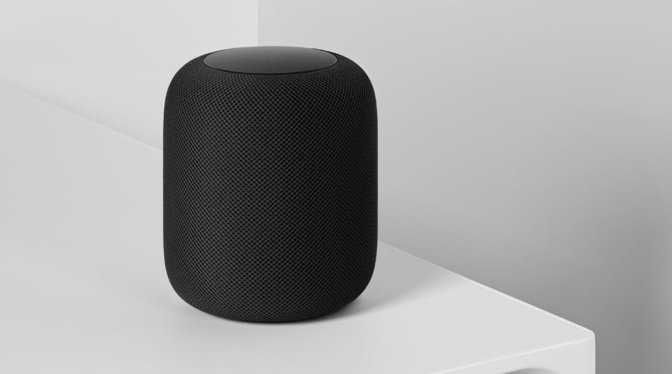
HomePod isn't "gone" quite yet, and you'll still have years of usage ahead if you get one now.
Apple made a shock announcement on March 13 that it was discontinuing the HomePod. The announcement advised Apple's original smart speaker would continue to be sold, including via its online store, but that there was only a limited supply available before stock runs out.
By July 14, Apple sold out of all stock of its original HomePods in the United States and Canada, both in physical Apple Stores and online. Availability elsewhere also changed, with the regional online stores in Japan, France, and Germany showing the HomePod as "availability reserved" or "subject to availability," with the "Buy" button removed.
The news may panic some users who think their Apple device will have a limited lifespan and could stop working completely in the near future.
Just because Apple isn't producing any more HomePods and supplies will eventually run out globally, it doesn't mean Apple will pull support straight away. The HomePod will continue to work properly for many years without issue.
If you read no further, understand this:
If you have an original HomePod, it isn't going to just stop working any time soon, because Apple has flipped a switch on its storefront. And, just because Apple isn't selling the original HomePod, that doesn't mean that your gear will spontaneously combust.
A discontinued product does not immediately reach end of life, as hardware producers and vendors often have to support their products for some time after their sale. Instead, the actual end of life occurs years after the fact.
This concept not only applies to hardware, but to software as well. For example, Adobe announced a discontinuation of the Flash Player in 2017, and that it would end support completely with an EOL date of December 31, 2020.
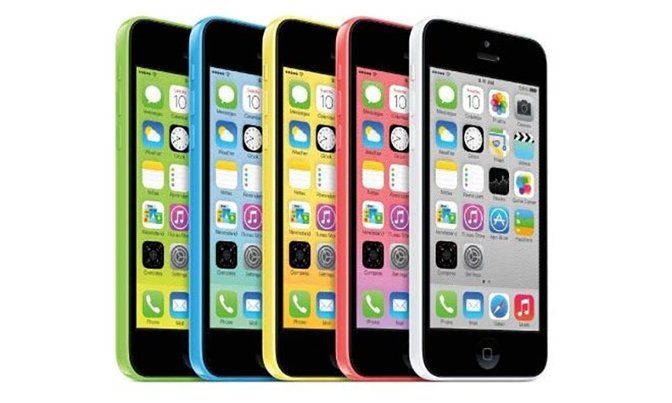
Launched in September 2013, the iPhone 5C became obsolete in November 2020.
As Apple explains on its support pages, owners of its products can obtain service and parts from Apple service providers for "5 years from when Apple last distributed the product for sale" at a minimum. In some cases where service or parts are required by law to be offered for a longer period, this can stretch the time to 7 years after its last sale.
Apple deems products it sold more between five and seven years ago as "Vintage" while those discontinued more than seven years ago are said to be "Obsolete."
Apple doesn't offer hardware service for obsolete products "with no exceptions." This includes preventing service partners from being able to order parts for obsolete products.
For that two-year "Vintage" period, there's a chance you will be able to get support, but not necessarily.
While Apple keeps a list of products it deems to be "Vintage" or "Obsolete," it is unknown exactly when Apple will add the HomePod to the list. As the HomePod is still actively sold by Apple somewhere in the world, the five-year and seven-year timers haven't started, and they won't until Apple ceases sale.
Even when Apple stops selling and the countdown to a "Vintage" designation begins, HomePod owners will still have support for their hardware.
Despite the discontinuation of the product, owners of existing HomePods and those buying the last stocks will continue to have the same support level as normal. There are no changes to warranties or their statutory rights as a consumer in relation to Apple.
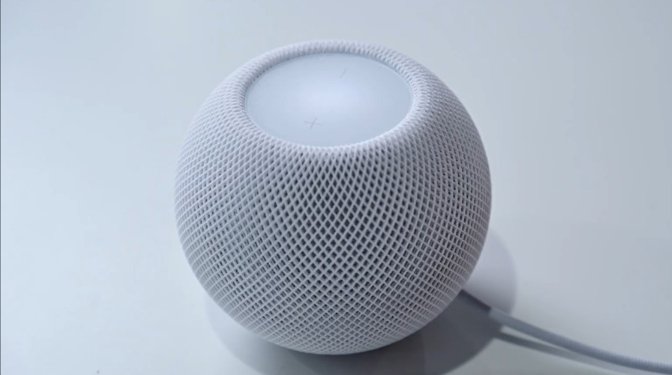
Features intended for the HomePod mini may still be added to the HomePod for a few more years.
However, the software updates don't necessarily add support for new features to the HomePod that will be introduced in the continuing HomePod mini line. Some new features will be shared across both models in early software updates due to their similarity, but later updates are unlikely to include such support.
In short, you will continue to have the same consumer support for the HomePod and beyond its warranty period until it becomes obsolete. Though even as an obsolete product, it will still be usable.
Since it takes considerable resources to change how core features, like Siri or Apple Music, functions across Apple's entire ecosystem, it would take a major technology restructuring effort to kill off that functionality.
That is, in theory. In reality, various features will eventually stop working once the HomePod is obsolete at some point.
Even so, there will still be some utility in the HomePod for some time to come.
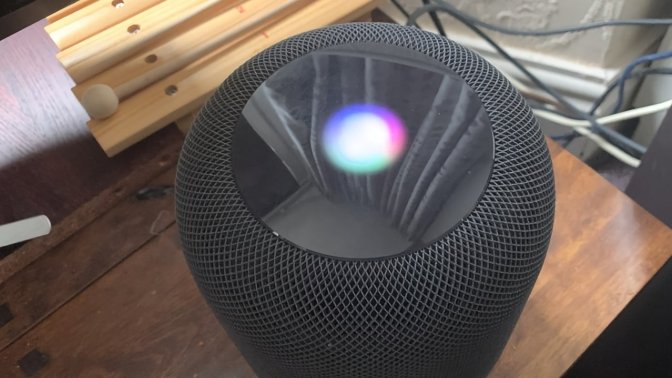
Even if Siri stops working, you'll still be able to use a HomePod for AirPlay
The support for AirPlay and AirPlay 2 means the HomePod will continue to be a target speaker for streaming audio, even if all of the speaker's other major features stop working. Even if Apple stops providing software updates to the HomePod for a considerable length of time, that AirPlay support will still remain active and available.
It may not remain a "smart" speaker far down the line, but it will still be usable as a speaker.
Despite being obsolete and not sold for well over a decade, owners of the original iPod can still use the portable music device with any Mac to synchronize music tracks.
In some instances, Apple ignores its own rules and provides software updates for devices that are obsolete.
Take the example of AirPort, Apple's line of routers and networking equipment that has been discontinued for quite some time, and with many models listed as obsolete. Apple has continued to support the now-unavailable product line with a number of security fixes, including for the obsolete models.
In August 2018, Apple even introduced AirPlay 2 support to the 802.11n AirPort Express base stations, enabling it to function properly with Apple's updated media-streaming protocol. And, that update was to a product line that existed as either vintage or obsolete at that time.
It is not unreasonable to expect the HomePod to benefit from software updates after it gains the Obsolete identifier.
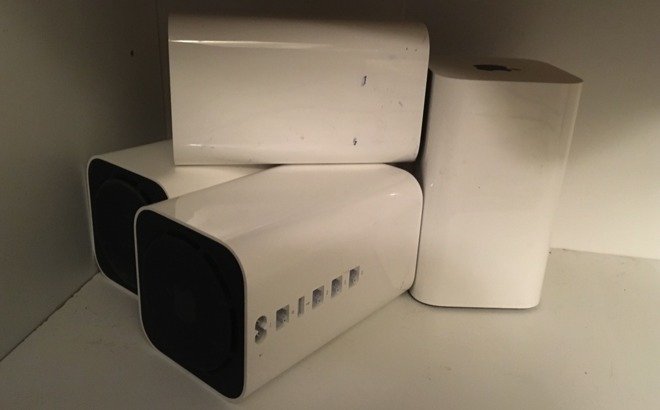
AirPort routers are no longer sold by Apple, but still receive regular updates.
New technologies Apple uses in its products generally include backward compatibility, ensuring it will work with older hardware in some way, if not necessarily optimally.
For example, Thunderbolt 3 devices will work with Thunderbolt 2, and since Thunderbolt 2 supports Thunderbolt 1, there's backward compatibility there as well. USB is similar in that USB 3-supporting hardware will work with USB 2 connections and earlier incarnations, albeit at slower speeds.
At its most extreme, it is possible to connect a first-generation iPod to a Mac running macOS Catalina, using a Thunderbolt 3 to Thunderbolt 2 adapter, then a Thunderbolt 2 to FireWire adapter. Even with the disparity in software age and technologies in use, that iPod will still sync properly.
Even at the point the HomePod becomes obsolete, it will be usable in some fashion by owners. And, that day of obsolescence is many years away.
Those looking to save money and instead buy a HomePod in open-box condition can check nearby Best Buy store locations for units available for store pickup, although inventory is quickly dwindling.

HomePod isn't "gone" quite yet, and you'll still have years of usage ahead if you get one now.
Apple made a shock announcement on March 13 that it was discontinuing the HomePod. The announcement advised Apple's original smart speaker would continue to be sold, including via its online store, but that there was only a limited supply available before stock runs out.
By July 14, Apple sold out of all stock of its original HomePods in the United States and Canada, both in physical Apple Stores and online. Availability elsewhere also changed, with the regional online stores in Japan, France, and Germany showing the HomePod as "availability reserved" or "subject to availability," with the "Buy" button removed.
The news may panic some users who think their Apple device will have a limited lifespan and could stop working completely in the near future.
Just because Apple isn't producing any more HomePods and supplies will eventually run out globally, it doesn't mean Apple will pull support straight away. The HomePod will continue to work properly for many years without issue.
If you read no further, understand this:
If you have an original HomePod, it isn't going to just stop working any time soon, because Apple has flipped a switch on its storefront. And, just because Apple isn't selling the original HomePod, that doesn't mean that your gear will spontaneously combust.
Discontinued, but not "End of Life"
Firstly, Apple is only discontinuing the original HomePod, and not declaring it to be either "End of Life," "Vintage," or "Obsolete." For all three terms, the effective meaning is the same: the device has reached the end of the product lifecycle.A discontinued product does not immediately reach end of life, as hardware producers and vendors often have to support their products for some time after their sale. Instead, the actual end of life occurs years after the fact.
This concept not only applies to hardware, but to software as well. For example, Adobe announced a discontinuation of the Flash Player in 2017, and that it would end support completely with an EOL date of December 31, 2020.

Launched in September 2013, the iPhone 5C became obsolete in November 2020.
As Apple explains on its support pages, owners of its products can obtain service and parts from Apple service providers for "5 years from when Apple last distributed the product for sale" at a minimum. In some cases where service or parts are required by law to be offered for a longer period, this can stretch the time to 7 years after its last sale.
Apple deems products it sold more between five and seven years ago as "Vintage" while those discontinued more than seven years ago are said to be "Obsolete."
Apple doesn't offer hardware service for obsolete products "with no exceptions." This includes preventing service partners from being able to order parts for obsolete products.
For that two-year "Vintage" period, there's a chance you will be able to get support, but not necessarily.
While Apple keeps a list of products it deems to be "Vintage" or "Obsolete," it is unknown exactly when Apple will add the HomePod to the list. As the HomePod is still actively sold by Apple somewhere in the world, the five-year and seven-year timers haven't started, and they won't until Apple ceases sale.
Even when Apple stops selling and the countdown to a "Vintage" designation begins, HomePod owners will still have support for their hardware.
What happens to HomePod in the short term?
Nothing happens to the HomePod that you own in the short term. Not a single thing. If you want to buy one at retail, though, don't count on sale pricing.Despite the discontinuation of the product, owners of existing HomePods and those buying the last stocks will continue to have the same support level as normal. There are no changes to warranties or their statutory rights as a consumer in relation to Apple.
But how do you know?
Apple has a policy of providing software updates to products it discontinues, which will ensure the product continues to function normally with other items in its product line. This typically includes performance improvements as well as security patches, among other changes.
Features intended for the HomePod mini may still be added to the HomePod for a few more years.
However, the software updates don't necessarily add support for new features to the HomePod that will be introduced in the continuing HomePod mini line. Some new features will be shared across both models in early software updates due to their similarity, but later updates are unlikely to include such support.
In short, you will continue to have the same consumer support for the HomePod and beyond its warranty period until it becomes obsolete. Though even as an obsolete product, it will still be usable.
Active into obsolescence
As it shares the same core functionality as the HomePod mini, many of the basic functions of the HomePod will continue to work long after it is deemed obsolete. Shared features, like Siri queries and music streaming, will stick around so long as Apple maintains the software on the HomePod.Since it takes considerable resources to change how core features, like Siri or Apple Music, functions across Apple's entire ecosystem, it would take a major technology restructuring effort to kill off that functionality.
That is, in theory. In reality, various features will eventually stop working once the HomePod is obsolete at some point.
Even so, there will still be some utility in the HomePod for some time to come.

Even if Siri stops working, you'll still be able to use a HomePod for AirPlay
The support for AirPlay and AirPlay 2 means the HomePod will continue to be a target speaker for streaming audio, even if all of the speaker's other major features stop working. Even if Apple stops providing software updates to the HomePod for a considerable length of time, that AirPlay support will still remain active and available.
It may not remain a "smart" speaker far down the line, but it will still be usable as a speaker.
The HomePod is not a dairy product with a short shelf-life
Apple tends to ensure its devices work for as long as reasonably possible, supported both by its high-quality hardware production and extensive software support.Despite being obsolete and not sold for well over a decade, owners of the original iPod can still use the portable music device with any Mac to synchronize music tracks.
In some instances, Apple ignores its own rules and provides software updates for devices that are obsolete.
Take the example of AirPort, Apple's line of routers and networking equipment that has been discontinued for quite some time, and with many models listed as obsolete. Apple has continued to support the now-unavailable product line with a number of security fixes, including for the obsolete models.
In August 2018, Apple even introduced AirPlay 2 support to the 802.11n AirPort Express base stations, enabling it to function properly with Apple's updated media-streaming protocol. And, that update was to a product line that existed as either vintage or obsolete at that time.
It is not unreasonable to expect the HomePod to benefit from software updates after it gains the Obsolete identifier.

AirPort routers are no longer sold by Apple, but still receive regular updates.
New technologies Apple uses in its products generally include backward compatibility, ensuring it will work with older hardware in some way, if not necessarily optimally.
For example, Thunderbolt 3 devices will work with Thunderbolt 2, and since Thunderbolt 2 supports Thunderbolt 1, there's backward compatibility there as well. USB is similar in that USB 3-supporting hardware will work with USB 2 connections and earlier incarnations, albeit at slower speeds.
At its most extreme, it is possible to connect a first-generation iPod to a Mac running macOS Catalina, using a Thunderbolt 3 to Thunderbolt 2 adapter, then a Thunderbolt 2 to FireWire adapter. Even with the disparity in software age and technologies in use, that iPod will still sync properly.
Even at the point the HomePod becomes obsolete, it will be usable in some fashion by owners. And, that day of obsolescence is many years away.
Where to buy a HomePod now
With most retailers sold out of Apple's HomePod, shoppers looking to pick up the discontinued smart speaker in new condition can do so from third-party sellers on eBay.Those looking to save money and instead buy a HomePod in open-box condition can check nearby Best Buy store locations for units available for store pickup, although inventory is quickly dwindling.

Comments
Sono has a market cap of 5 billion. That’s pocket change for Apple.
It’s the same principle as making a non-smart TV by connecting an Apple TV to it and air playing content to it. Just like how YouTube doesn’t support the old Apple TV’s anymore, it still acts a bride to AirPlay YouTube videos to.
My magic iPad keyboard was 50 dollars more than the HomePod too, and those are selling just fine.
the HomePod mini does not do that. It’s just a speaker made by Apple. What entices someone to buy it over any other speaker out there?
I’d rather buy 2 homepods for 600 dollars to get a nice system going.
I also find it interesting how people argue a device isn't obsolete just because it isn't being manufactured any more, yet they argue that USB A and the 3.5mm headphone jack are obsolete despite the fact that they are still bing produced. There's a bit of logical inconsistency going on here...
I have a pair of QUAD ESL-63s that still work superbly after buying them in 1987. Heck, QUAD’s original ESL, introduced in 1957 is still regarded by some as one of the finest speakers in the world. So four years?
Due to space concerns now, my ESLs and big chunky power amps are total overkill and/or I don’t have the space. The HomePods seemed a viable alternative, taking up minimal space and sounding pretty good for the size (too much bass though). I knew that being a processor, WiFi type of software/hardware thing it was at risk of the usual fate of computer products. But 4 years was a lot shorter than I expected!
What happens when AirPlay 3 is the thing and HomePods are stuck on V2 with no update path? That’s my concern. Time will tell.
That kind of mistrust does not bode well for buying an Apple Car. Why in the hell would I EVER consider buying a car from a company I think my abandon it in 5 years? I wouldn't!
Not to say they WILL follow Sonos' precedent in long-term software support, but Sonos track record of running a real business in this category suggests they will at least consider the policies of Sonos before diverging from them. Everyone else in the category that I can think of is either a small product line under a diversified consumer brand or a much more niche player, often audiophile-focused. The Alexas & Google speakers seem to be points of entry into the profit centers of Amazon & Google, not a core line of profitable product and these companies seem to feel little concern for discontinuing models or services in these product lines. The electronics brands' products (Heos, Bose) seem more customer-focused, but without the benefit of continuously delivering customers (read: private information) to other profit centers of the business, you have to wonder how long until the manufacturers lose interest and move on. The audiophile-grade devices operate on a different model entirely, and I think it is safe to exclude them from consideration—no major brands are running a business like Bang & Olufsen or McIntosh and I doubt Apple has any interest, either.
Discontinuing the large form factor HomePod simply reminds us that Apple is no different than any other company in recognizing that they have finite resources, finite bandwidth, and must always focus and always be very deliberate about everything they say “yes” to. I think we sometimes think that Apple has infinite everything and can sustain everything they’ve started because they have so much financial capital. But financial capital isn’t an impediment for Apple. Human capital certainly is, as is getting sufficient mindshare, and therefore influence, within the company all the way up to the board.
It is also clear that they have a habit of neglecting other key products. A company the size of Apple should have ample resources to devote to all the product spaces that they choose to be in. Yet Apple does not appear to have a strategy or roadmap of what product spaces they want to be in 5-10 years down the road. Like many others, I find this to be a deeply troubling sign of rudderless and sclerotic management.
Does Apple want to be in the home audio space or do they not? One would have thought that decision would have been made long ago. If the answer is “yes” then I would expect them to stick with it to tweak, rework, re-design struggling products to achieve success overtime. The HomePod mini, as nice as it is, doesn’t inspire confidence, especially if it’s going to rely on Siri. Speaking of which, when the hell are they going to fix Siri?
If you put years into designing a product you should stick with it even if the market does not respond as enthusiastically as you had hoped for initially.
There's a lot I don't particularly like about the initial design, but size and wattage aren't among them. A version 2.0 could quite easily vastly improve on those limitations and provide for an altogether more versatile product. There is little doubt in my mind that a retail price drop would also be welcome.
The AP Mini obviously has its place too and that was pointed out when the original HP was presented. The HP should have become a bigger version of the Mini and lived on IMO.
I feel this product was let go too early and not really given an opportunity to reach its true potential.
Acquiring Sonos would be more akin to taking a competitor off the market IMO than seeking growth for the Sonos product line itself and there is absolutely nothing (on paper) that Sonos does that Apple can't do.
The HP should have been able to play, direct and seamlessly, from anything the user pointed at it wirelessly (Wifi or Bluetooth).
Broad codec support and good antenna design.
Less obstacles and more convergence with industry standards and, yes, that would include allowing users to choose their assistants of choice. Less lock-in and more interoperability all round.
I imagine that at some point (when assistants finally reach the capacity of what we see today in science fiction) investigations will begin, in an effort to enhance competition and give consumers choice.
If Apple were strapped for cash I would understand a change in product direction but the HP is really just part of a bigger system where both it and the Mini could do well.
If, at the end of the day, the decision was more a question of economics than forward thinking, I feel it will have been a mistake.
so instead of correcting and fine tuning to fix the market problems, nothing. Languishment. Another potentially great product dies from neglect because someone got egg on their face.
They released the HomePod mini for that iteration.
Most of the AI forum goers know, yes. But, AI is for everybody, with varying levels of knowledge. Our emails were bonkers this weekend.
The HomePod ecosystem isn't dead. It evolved into the HomePod mini, like Apple said.
The HomePod sounds incredible, and a stereo pair is amazingly engaging for the size.
At $99, you may get a little more slack.
My concern is that this was part of a home invasion strategy that now seems less defined, less robust.
However, if this is the precursor of a HP2, perhaps with mesh networking capabilities, or of Apple buying Sonos (I initially discounted this rumor, but the Sonos name, and the development and product already done completed (with Airplay 2), especially for sounders and 5.1 setups), it might be worth it for Apple. I own several HomePods as well as four zones of Sonos Amps/ HT setup)
Was Beats "worth" $3bn though? There is a lot less buzz arounds Beats lately it seems...